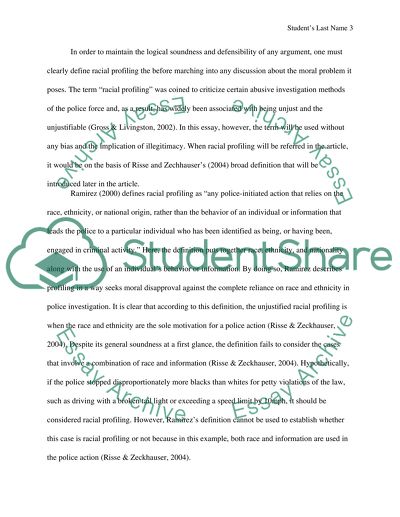Cite this document
(“Defining Racial Profiling and Utilitarian Argument Essay”, n.d.)
Retrieved from https://studentshare.org/environmental-studies/1410716-defining-racial-profiling-and-utilitarian-argument
Retrieved from https://studentshare.org/environmental-studies/1410716-defining-racial-profiling-and-utilitarian-argument
(Defining Racial Profiling and Utilitarian Argument Essay)
https://studentshare.org/environmental-studies/1410716-defining-racial-profiling-and-utilitarian-argument.
https://studentshare.org/environmental-studies/1410716-defining-racial-profiling-and-utilitarian-argument.
“Defining Racial Profiling and Utilitarian Argument Essay”, n.d. https://studentshare.org/environmental-studies/1410716-defining-racial-profiling-and-utilitarian-argument.


